Tokyo’s ‘internet cafe refugees’ and how coronavirus shone a light on Japan’s homelessness problem
There are calls for the Tokyo 2020 Olympic village to be used to protect thousands of vulnerable people, writes Jack Rathborn

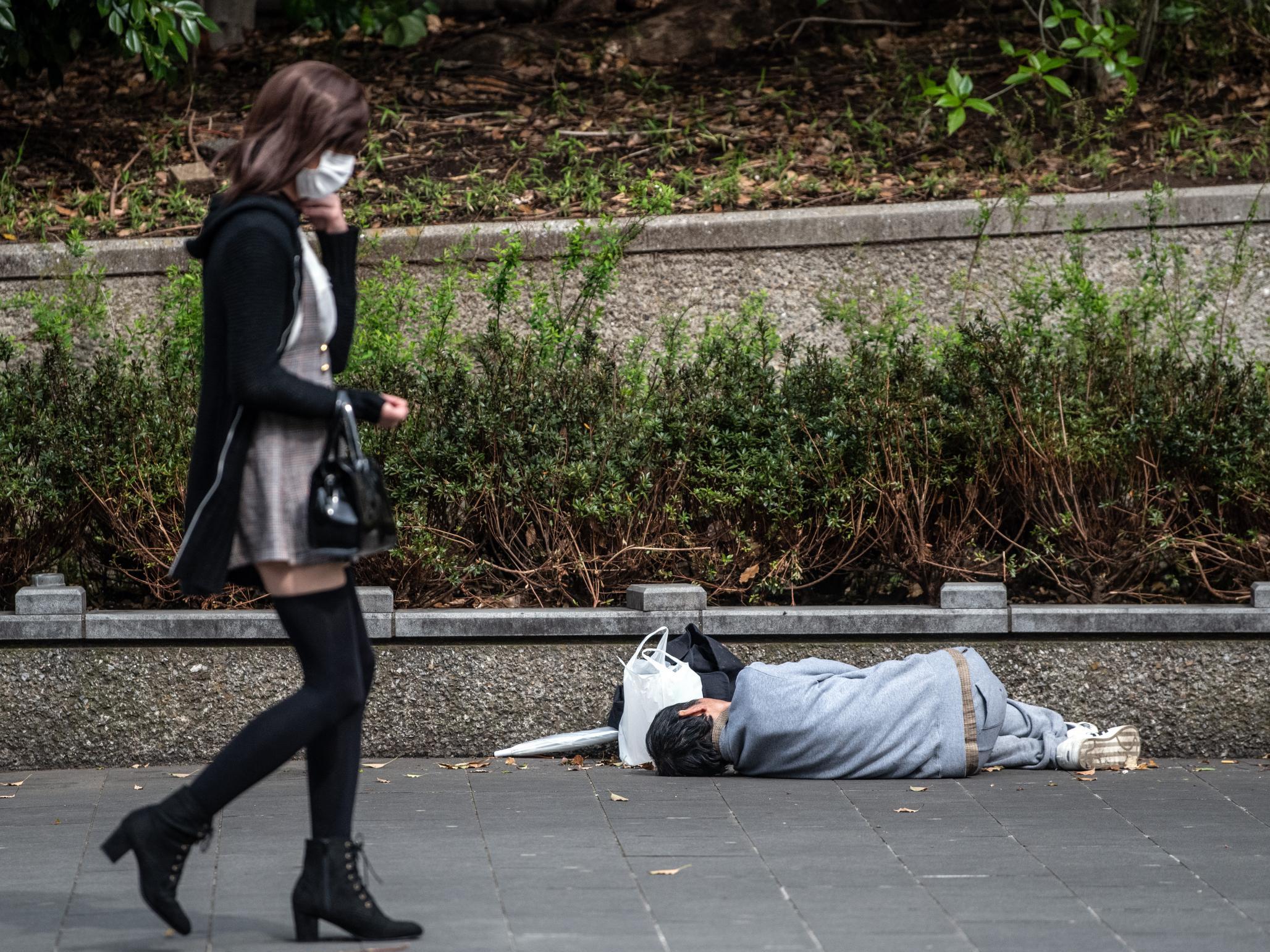
Your support helps us to tell the story
From reproductive rights to climate change to Big Tech, The Independent is on the ground when the story is developing. Whether it's investigating the financials of Elon Musk's pro-Trump PAC or producing our latest documentary, 'The A Word', which shines a light on the American women fighting for reproductive rights, we know how important it is to parse out the facts from the messaging.
At such a critical moment in US history, we need reporters on the ground. Your donation allows us to keep sending journalists to speak to both sides of the story.
The Independent is trusted by Americans across the entire political spectrum. And unlike many other quality news outlets, we choose not to lock Americans out of our reporting and analysis with paywalls. We believe quality journalism should be available to everyone, paid for by those who can afford it.
Your support makes all the difference.The cramped nature of Tokyo’s internet cafes meant there was little surprise when Japan shut them down as part of its efforts to limit the spread of coronavirus. But by prioritising social distancing, the move has unleashed a problem that has been hiding beneath the surface for years.
Open around the clock, these internet cafes have served to obscure Japan’s homelessness rate, with the Ministry of Health, Labour and Welfare reporting last year that the total was just 4,977 people.
A social stigma is attached to homelessness in the country with many accustomed to life-long employment. Those who find themselves unemployed often endure a daily routine of cramming themselves into the cafes’ box-like spaces. There is usually an array of caffeinated drinks on offer in a dazzling corner of the facilities, which bear some resemblance to shelters and hostels, but most arrive merely to retreat to the dingy corridor where they will find a booth barely big enough to squeeze into alongside their entire belongings. They serve to provide some precious privacy and respite for up to 12 hours though, costing as little as 2,000 Yen (around £15).
“It’s a phenomenon that has come up in recent years,” explains Arnold Fang, Amnesty International’s researcher for east Asia. “Especially with women who do not have a stable abode.
“The internet cafe is a place you can rent by the hour, you can rent really small spaces, as small as a booth to use the computer and some of them have toilets and shower facilities. It’s possible you can live out of a suitcase and go in and out of these internet cafes if you cannot afford formal housing.”
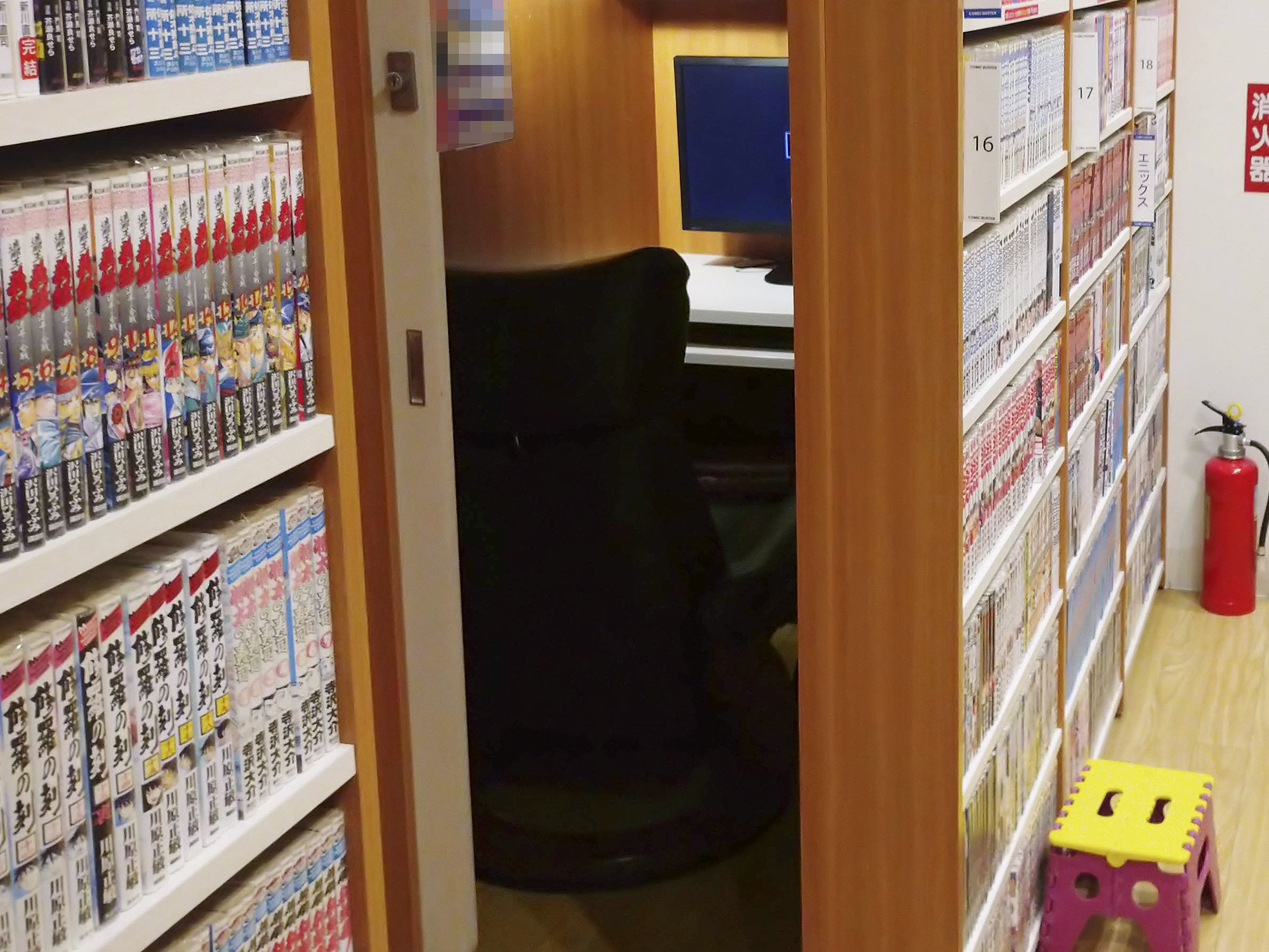
At least 4,000 people are using cyber cafes to sleep without secure housing elsewhere, according to the Tokyo Metropolitan Government, despite 80 per cent of those currently employed.
Hong Kong has experienced a similar issue in recent weeks too, with the community known as “McRefugees” especially vulnerable following the closure of McDonald’s restaurants.
As of Tuesday morning, Japan has 11,135 cases of Covid-19 and 263 confirmed fatalities, according to Johns Hopkins University. The pandemic has seen Tokyo, home to almost 14 million people alone, assume an eerie atmosphere since a state of emergency was declared on 7 April. The drastically different surroundings have presented an immediate challenge to the homeless, as well as putting a strain on their mental health.
“It’s very upsetting. Big cities are being cleared out,” says Hannah Gousy, head of policy and campaigns for UK charity Crisis, referring to a global trend experienced by those suffering from homelessness. “For people sleeping rough, which is already an upsetting situation, where you can feel cut off, to see a big city suddenly clear out can be really scary.
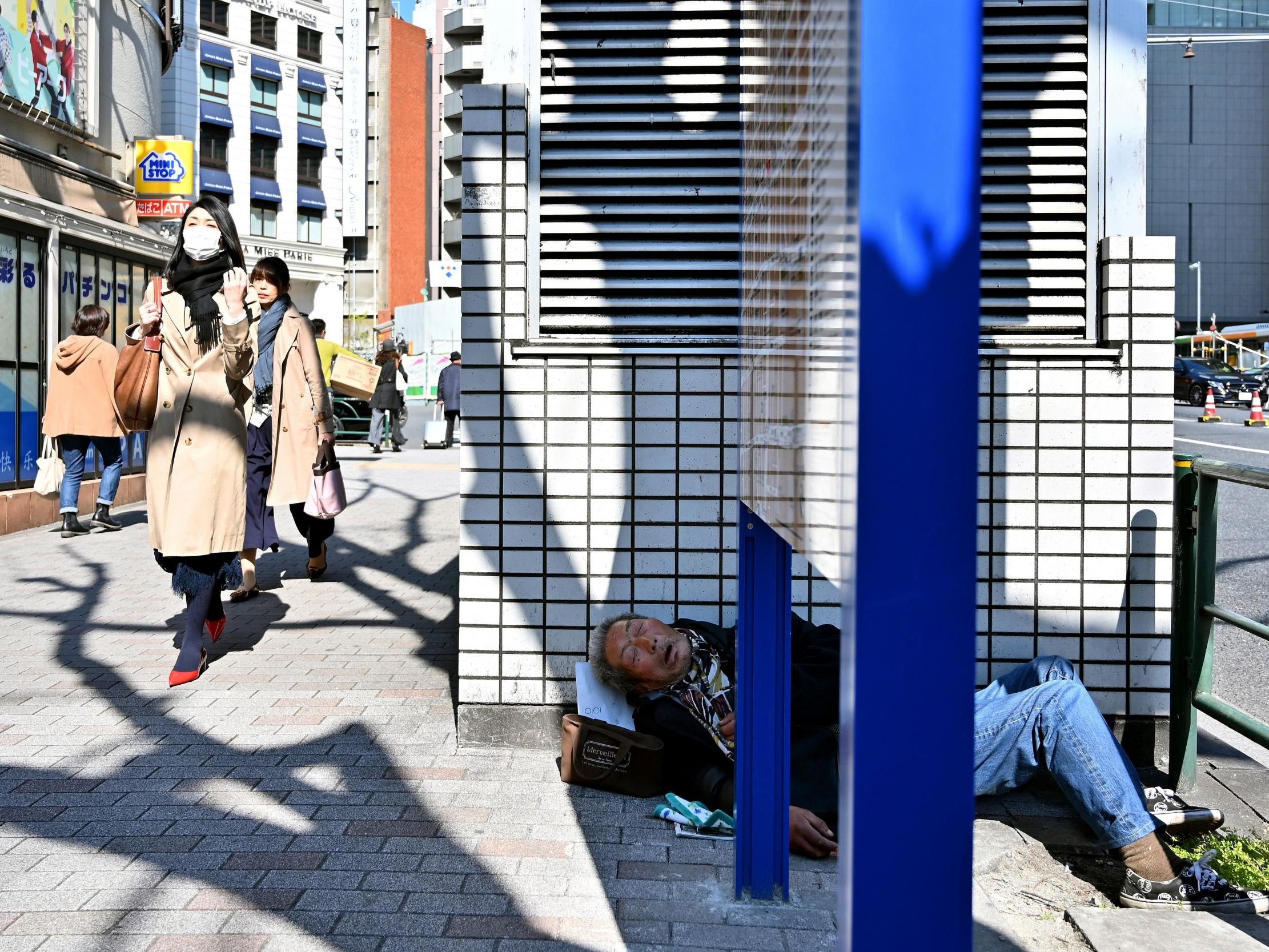
“Places where you might normally go for something to eat or drink are suddenly not there anymore.”
The “internet cafe refugees” are therefore tasked with finding alternative forms of accommodation. Yet many have been left without a viable option, with Tokyo-based homelessness charity Moyai labelling prime minister Shinzo Abe’s governmental policy as “confusing” due to the need to possess various documents.
“Cyber cafes will not be available so they’re losing their homes,” says Moyai chairperson Ohnishi Ren. “The Tokyo Metropolitan Government prepared hotels as shelter, but there are only 2,000 units and there are more cyber cafe refugees than this – it’s not enough. People unable to stay in the hotels or those who have stayed there for a few days or a week have been told to move to another shelter called Mutei (low cost accommodation facilities).
“But the conditions are much worse than the cyber cafes because you have to stay with other people in the same rooms.
“In the worst case, you could live with 20 other people in the same room and in the current moment that is clearly nonsense.”
Japan therefore finds itself in a precarious position, knowing the crisis demands urgency to rehouse the homeless, while also taking caution to not exacerbate the issue. Professor Nicholas Pleace, director of social policy at the University of York, insists homeless people congregating in any facility or communal service may serve as an accelerant to the pathogen.
“It might be more dangerous inside some services than outside some services,” explains Professor Pleace. “Nobody should be outside for a second, there are endless risks and deprivations associated with that.
“But being outside and being able to socially distance to some degree compared to being inside a big emergency shelter, with potentially a large amount of people inside the same space, breathing each other’s air – the risk is greater.”
It is here that Tokyo 2020 may be able to play a pivotal role during the crisis, grasping a different type of Olympic legacy to the one they imagined many years ago. The committee sat idly last month as the world of sport collectively endured the turmoil of the pandemic, before begrudgingly pushing the Games back to 2021. The forlorn village for athletes may now serve as a shield for thousands desperately looking to remain untouched by Covid-19.
“We are asking the government to open the village for the Olympic Games, with more than 15,000 units in the building,” Mr Ohnishi says. “We want the government to open this up for those who lost their housing.
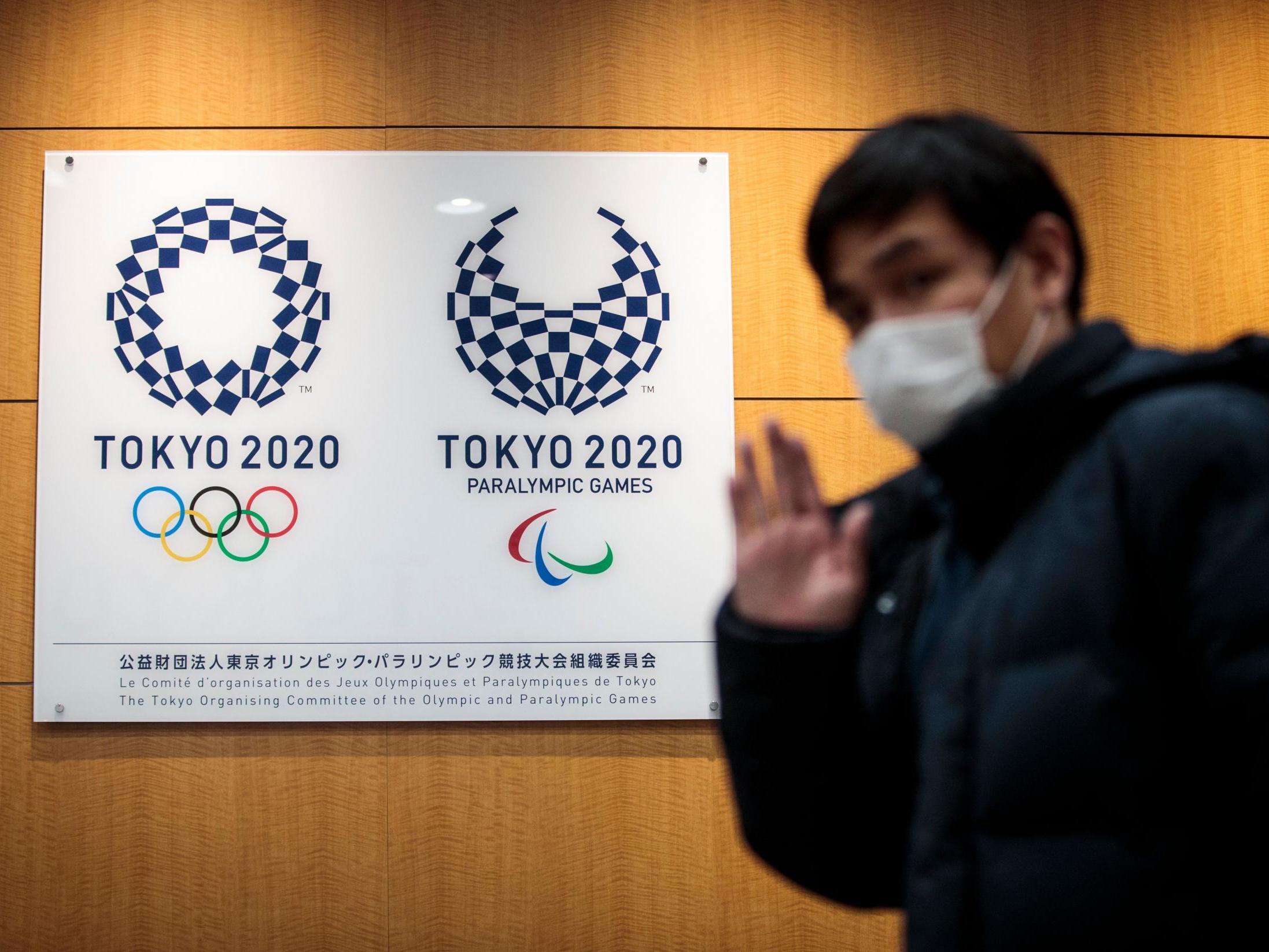
“Even if they do so, it’ll be temporary housing, just a shelter. Afterwards the government should provide support to provide more secure housing. We need a long-term strategy to help these people.”
The Independent understands there has been no official approach yet towards Tokyo 2020 from the government, while an agreement would not be simple, requiring building contractors, neighbours and the organising committee to come to terms.
The world is now more aware of the predicament thousands are contending with, meaning there is hope that the crisis may serve as a turning point in the battle to eradicate sleeping rough. There is the immense success seen in Finland, which has long-since served as a beacon with its Housing First approach.
But with economic stagnation inevitable as the world emerges from this crisis, focus will turn towards the action taken to limit the impact of future viruses as Covid-19 shines a light on the inadequacies of the social welfare system.
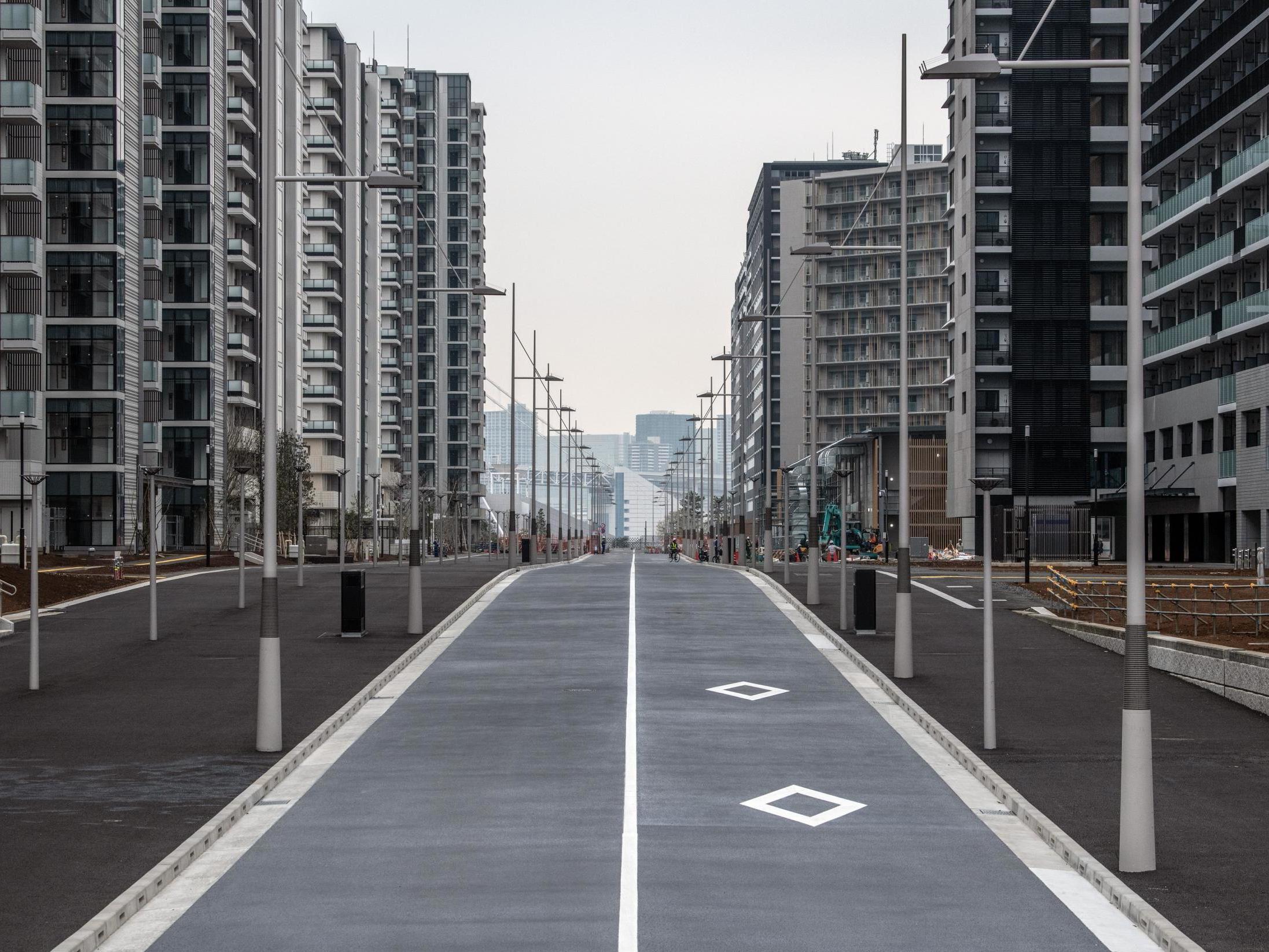
“The ultimate cost of not having people adequately housed, whether it’s Covid-19 or the next pathogen that emerges, is that you have got people living in situations where it can spread like wildfire,” claims Professor Preach. “And from those marginalised or disadvantaged populations, spreading to the general population.
“Nobody is safe from this, the emerging evidence is it is overcrowded neighbours that are getting disproportionately affected. If you are going to eradicate this or at least contain it, [focusing on housing] is how you’ll have to go about it. If you don’t address the needs of the population that is homeless, or with acute housing needs and housing exclusion, then you’re putting them at risk.
“There are all of the humanitarian issues that come with that, which often includes vulnerable people with underlying conditions, and then there’s the broader question about social safety and economic viability of society. So that’s why it needs to be tackled.”
So from the deserted streets of Tokyo to London and beyond, the pandemic has finally exposed those who have neglected homelessness for too long. The hope now then is that from the gloom, the crisis may represent a catalyst to strengthen the belief that housing should be a human right.
Join our commenting forum
Join thought-provoking conversations, follow other Independent readers and see their replies
Comments